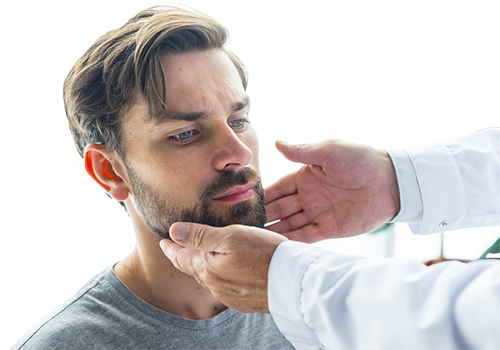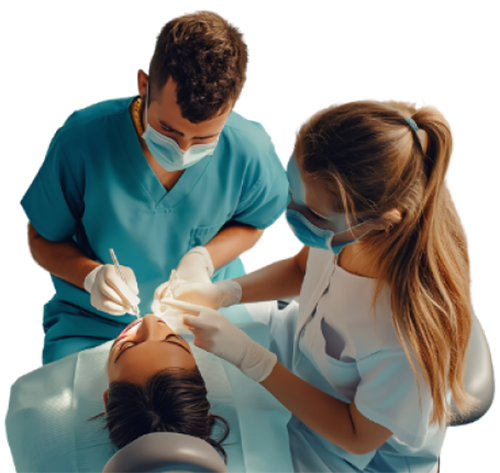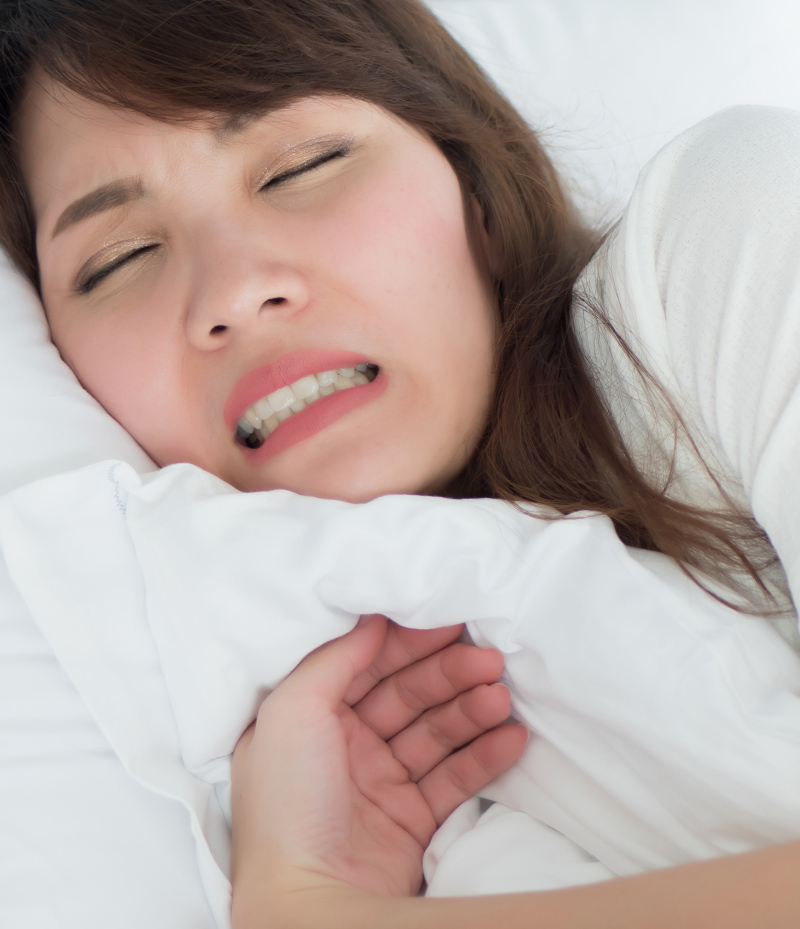
What is Bruxism Treatment?
Bruxism refers to an oral parafunctional activity that most people experience at some point in their lives. The two main characteristics of bruxism are grinding of the teeth and clenching of the jaw, which can occur during the day or at night.
Bruxism is one of the most common known sleep disorders and causes most of its damage during sleeping hours. People who suffer from bruxism clench and grind their teeth because they have a malfunctioning chewing reflex, which is turned off in non-sufferers when sleeping. For sufferers of bruxism, deep sleep or even naps cause the reflex nerve control center in the brain to turn off and the reflex pathways to become activ
Symptoms of Bruxism
Typically, the incisors and canines (front six upper and lower teeth) of opposing arches grind against each other laterally. This side-to-side action puts undue strain on the medial pterygoid muscles and the temporomandibular joints.
Bruxism is frequently misdiagnosed or not diagnosed at all because it is only one of several potential causes of tooth wear. Only a trained professional can tell the difference between bruxing wear and wear caused by overly aggressive brushing, acidic soft drinks, and abrasive foods.
The most common symptoms of bruxism are:
- Earache
- Depression
- Headaches
- Eating disorders
- Anxiety
- Teeth that are flattened, fractured, chipped or loose
- Worn tooth enamel,
- Face, neck, and shoulder pain
- Painful jaw, which can lead to a condition called temporomandibular disorder (TMD)

Why You Should Visit Wilshire Dental if You Are Grinding Your Teeth
Here are some of the main reasons why bruxism should be promptly treated:
Gum Recession and Tooth Loss
Bruxism is one of the leading causes of gum recession and tooth loss. It damages the soft tissue directly and leads to loose teeth and deep pockets, where bacteria can colonize and destroy the supporting bone.
Occlusal Trauma
The abnormal wear patterns on the occlusal (chewing) surfaces can lead to fractures in the teeth, which may require restorative treatment.
Arthritis
In severe and chronic cases, bruxing can eventually lead to painful arthritis in the temporomandibular (TMJ) joints (the joints that allow the jaw to open smoothly).
Myofascial Pain
The grinding associated with bruxism can eventually shorten and blunt the teeth, leading to debilitating headaches and muscle pain in the myofascial region.
Treating Bruxism at Wilshire Dental
There is no single cure for bruxism. However, there are a variety of helpful devices and tools available at Wilshire Dental. Here are some common ways in which bruxism is treated:
Mouthguards
An acrylic mouthguard can be designed from tooth impressions to minimize the abrasive action of tooth surfaces during normal sleep. Mouthguards should be worn on a long-term basis to help to stabilize the occlusion as well as prevent damage to teeth and to the temporomandibular joint.
NTI-tss Device
This device is fitted by a health professional and only covers the front teeth. Its goal is to prevent the grinding of the rear molars by limiting the contraction of the temporalis muscle.
Botox®
Botox can be injected into the muscles to relax and weaken them. Botox is an excellent treatment for bruxism because it weakens the muscles enough to prevent grinding but not enough to interfere with everyday functions like chewing and speaking.
BiteStrip®
This is an economical device used to diagnose bruxism at home. The device itself is a small electromyography that senses and monitors any activity in the jaw muscles during sleep.
Other methods of treatment include relaxation exercises, stress management education, and biofeedback mechanisms. When bruxing is under control, a variety of dental procedures, such as crowns, gum grafts, and crown lengthening, can offer relief.
Restorative Dentistry for Bruxism
Depending on the patient, restorative dentistry may offer solutions to help individuals suffering from bruxism. Composite fillings can repair teeth damaged by bruxism, restoring their strength and appearance. Advanced dental crowns, including dental implant crowns, can protect and strengthen teeth that have been significantly worn down or damaged. Inlays and onlays are another option to repair teeth affected by this condition, providing a durable and natural-looking restoration. These restorative treatments not only address the effects but also help prevent further damage, preserving the health and function of the teeth.




